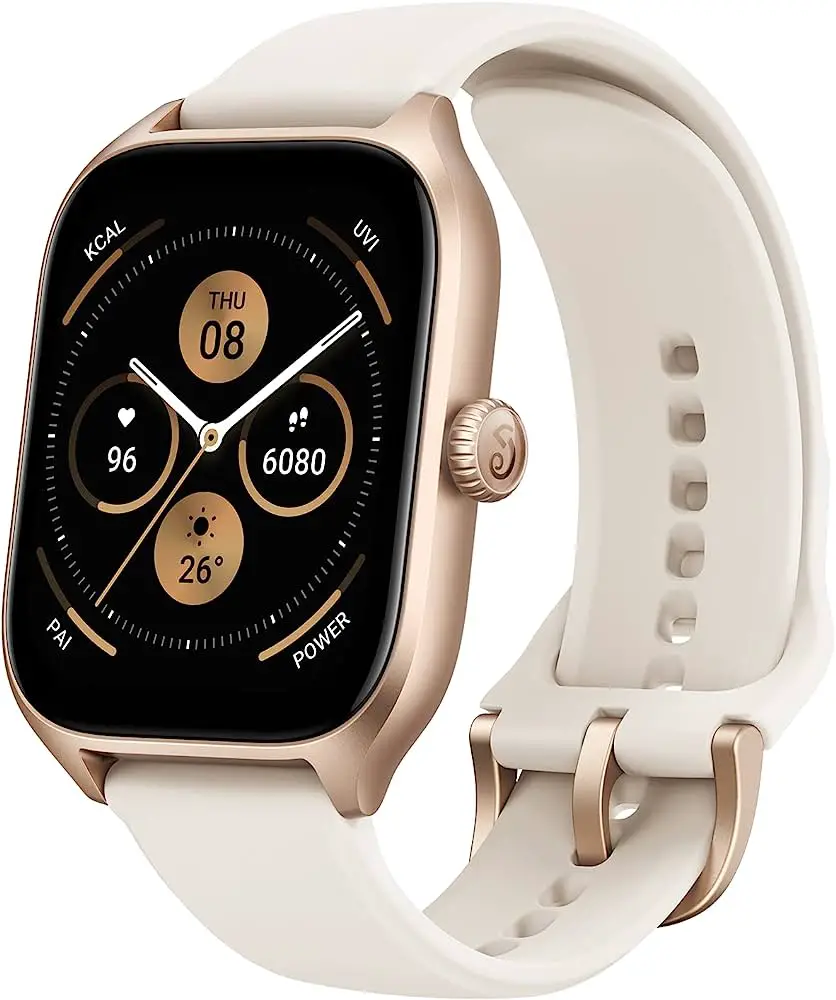The Fitness app on iPhone is generally accurate, but may vary in accuracy depending on individual activities. In today’s digital age, fitness apps have become a popular tool for tracking and monitoring physical activity.
With the rise of health and wellness trends, iPhone users often rely on the built-in Fitness app to keep tabs on their exercise routines. While the app provides helpful insights and data, many users question its accuracy and reliability. Understanding the nuances of its functionality is crucial in evaluating its effectiveness.
This article aims to investigate the accuracy of the Fitness app on iPhone, shedding light on its pros and cons. By delving into its features and capabilities, users can make informed decisions about incorporating it into their fitness journey. Whether you’re a seasoned athlete or a novice gym-goer, understanding the accuracy of fitness apps like the one on iPhone can significantly impact your wellness goals.
The Accuracy Of The Iphone Fitness App
Are you someone who religiously relies on their iPhone fitness app to track their exercise routine, monitor workouts, and measure progress? With the widespread use of technology in health and fitness, it’s natural to question the accuracy of the iPhone fitness app. In this blog post, we’ll delve into the intricacies of the iPhone fitness app, dissecting the algorithms, sensors, and data aggregation methods to determine just how accurate it is in capturing your fitness data.
Understanding The Algorithm Behind The App
Behind the sleek interface of the iPhone fitness app lies a complex algorithm designed to interpret and process the data collected from various sensors. The algorithm not only calculates basic metrics like steps taken and distance covered but also factors in variables such as terrain, elevation, and speed to provide a comprehensive overview of your fitness activities. This robust algorithm forms the backbone of the app’s accuracy, striving to provide users with reliable and precise fitness data.
How Accurate Is The Fitness App On Iphone: A Deep Dive Into Its Precision
One of the burning questions on many users’ minds is, “How accurate is the fitness app on iPhone?” To ascertain its precision, we need to delve into the technical aspects of sensor technology and data processing. By examining the intricate workings of the app, we can gain a deeper understanding of its reliability in capturing fitness metrics.
The Role Of Sensors In Tracking Accuracy
Equipped with an array of sensors, including GPS, accelerometer, gyroscope, and heart rate monitor, the iPhone is capable of capturing a wealth of data related to physical activity. These sensors play a pivotal role in ensuring the accuracy of the fitness app by constantly monitoring and analyzing movements, heart rate, and geographical location. The synergy between these sensors contributes to the app’s ability to track and quantify physical exertion with a high degree of accuracy.
Analyzing Data Aggregation Methods
Another key aspect that influences the accuracy of the iPhone fitness app is the method of aggregating and interpreting the data gathered from various sensors. By scrutinizing the data aggregation process, we can gauge the reliability of the app in presenting a cohesive and detailed overview of fitness activities. Understanding how the app integrates and processes data is crucial in validating its accuracy and ensuring that users can trust the information it provides.
Comparing App Data With Real-world Metrics
When it comes to tracking fitness metrics, many rely on the convenience of fitness apps on their iPhones. These apps provide a wealth of data, from step counts to distance tracking, aiming to help users stay active and monitor their progress. But just how accurate are these app-generated metrics when compared to real-world measurements? Let’s delve into the details and assess the precision of fitness app data across various scenarios.
Assessing Step Count Accuracy In Various Scenarios
Walking
When utilizing the fitness app on an iPhone to track step count during walking sessions, it’s essential to evaluate its accuracy. Users often rely on these metrics to gauge their daily activity levels, so precision is crucial. The app should ideally capture every step taken during a walk, providing a reliable reflection of the user’s physical movement.
Running
For running enthusiasts, the accuracy of step count data becomes even more critical. Running involves a different stride pattern and intensity compared to walking, which can pose challenges for the app’s ability to register each step accurately. As such, assessing the app’s consistency and precision in tracking step count during running activities is essential for an accurate portrayal of the user’s performance.
Evaluating Distance Tracking Precision
Indoor vs. outdoor accuracy
Whether users engage in indoor or outdoor activities, the fitness app’s ability to accurately track distance traveled is vital for monitoring progress. Indoor activities may present challenges such as GPS signal limitations, potentially impacting the app’s precision. On the other hand, outdoor activities can benefit from GPS tracking but may still face hurdles in accurately capturing distance due to signal interference or inaccuracies.
Impact of terrain and elevation changes
Considering the influence of terrain and elevation changes on distance tracking is crucial when assessing app accuracy. Uneven terrain and significant elevation shifts can affect the app’s ability to calculate distance precisely, potentially leading to discrepancies between app-generated data and real-world metrics. This factor becomes particularly relevant for outdoor activities such as hiking or trail running.
Validation Through User Experience And Reviews
When it comes to the accuracy of fitness apps on iPhone, users’ experiences and reviews play a crucial role in validating their effectiveness. Understanding how these apps perform in real-world scenarios can provide valuable insights into their precision and reliability.
Interpretation Of User Feedback
In interpreting user feedback, it’s essential to consider the breadth of experiences reported. Users’ comments on the app’s accuracy, usability, and overall satisfaction provide invaluable data for assessing its performance.
Case Studies Of Real-world Testing
Real-world testing through case studies can offer concrete evidence of how accurate the fitness app is. Assessing the app’s performance in various scenarios and environments can help validate its reliability.
User Satisfaction And Reliability
An analysis of user satisfaction and reliability metrics contributes to understanding the app’s overall effectiveness. High user satisfaction and consistent reliability are indicative of the app’s accuracy.
Analyzing Professional Assessments And Reviews
Professional assessments and reviews provide expert opinions and in-depth analysis of the app’s accuracy. Evaluating these assessments can offer valuable insights into its performance and precision.
Comparison With Dedicated Fitness Devices
Comparing the app’s performance with dedicated fitness devices can provide a benchmark for its accuracy. Understanding how it measures up against specialized equipment can offer valuable perspective.
Expert Opinions On App Precision
Expert opinions on the app’s precision play a significant role in gauging its accuracy. Evaluating insights from fitness experts can provide a comprehensive understanding of the app’s effectiveness.
Limitations And Potential Factors Affecting Accuracy
When it comes to using fitness apps on the iPhone, the accuracy of tracking is a key concern for users. While these apps offer valuable insights into health and fitness metrics, it’s important to understand the limitations and potential factors that can affect their accuracy. Inherent technical constraints, environmental variables, and user behavior all play a role in determining the precision of fitness tracking on the iPhone.
Understanding Limitations Of Smartphone Tracking
Smartphone tracking, including fitness apps on the iPhone, has certain inherent limitations that can impact accuracy. The reliance on built-in sensors and algorithms may introduce discrepancies in data collection and interpretation.
Inherent Technical Constraints
The technical capabilities of the iPhone and its internal sensors, such as the accelerometer and gyroscope, contribute to the limitations of fitness tracking. These sensors have specific thresholds and may not capture movements or activities with absolute precision.
Environmental Variables And Their Influence
Environmental factors, such as GPS signal strength, weather conditions, and physical obstructions, can influence the accuracy of fitness tracking on the iPhone. Variation in these external elements can affect the app’s ability to accurately assess location, distance, and elevation during physical activities.
The Influence Of User Behavior And Input On Accuracy
User behavior, such as device placement, consistency in carrying the iPhone during physical activities, and the input of personal metrics, can impact the accuracy of fitness tracking. Inaccurate data input or inconsistent device usage may lead to discrepancies in the recorded fitness metrics.
Recognizing User-related Errors And Misinterpretations
Understanding potential errors stemming from user behavior, such as forgetting to start or stop tracking, misinterpretations of app features, and misplacement of the device during exercise, is crucial. Recognizing these factors helps in mitigating inaccuracies and ensuring more reliable fitness tracking.
:max_bytes(150000):strip_icc()/vwt-fitness-trackers-test-apple-watch-ultra-donna-freydkin-01-21132ffc520c40a08c7316f182ba36b2.jpg)
Credit: www.verywellfit.com
Frequently Asked Questions For How Accurate Is The Fitness App On Iphone
How Does The Iphone Fitness App Track My Activity?
The iPhone fitness app utilizes the device’s sensors and data to track your movement, such as steps, distance, and active minutes. It also factors in your activity level and workout intensity to provide accurate feedback on your fitness progress.
Can The Iphone Fitness App Accurately Measure Calories Burned?
Yes, the iPhone fitness app uses advanced algorithms to calculate calories burned based on your physical activity and personal data. It considers factors like heart rate, duration of exercise, and intensity level to provide a reliable estimate of calories expended during workouts.
Is The Gps Feature In The Iphone Fitness App Dependable For Outdoor Activities?
The GPS feature in the iPhone fitness app is highly reliable for tracking outdoor activities such as running, cycling, and hiking. It provides precise location data and accurately maps your routes, allowing you to monitor your performance and distance covered with confidence.
Conclusion
The fitness app on iPhone has its benefits but may not be 100% accurate. It is important to use it as a guide rather than relying solely on its measurements. Your best bet is to pair it with other forms of tracking for a more holistic approach to fitness.



